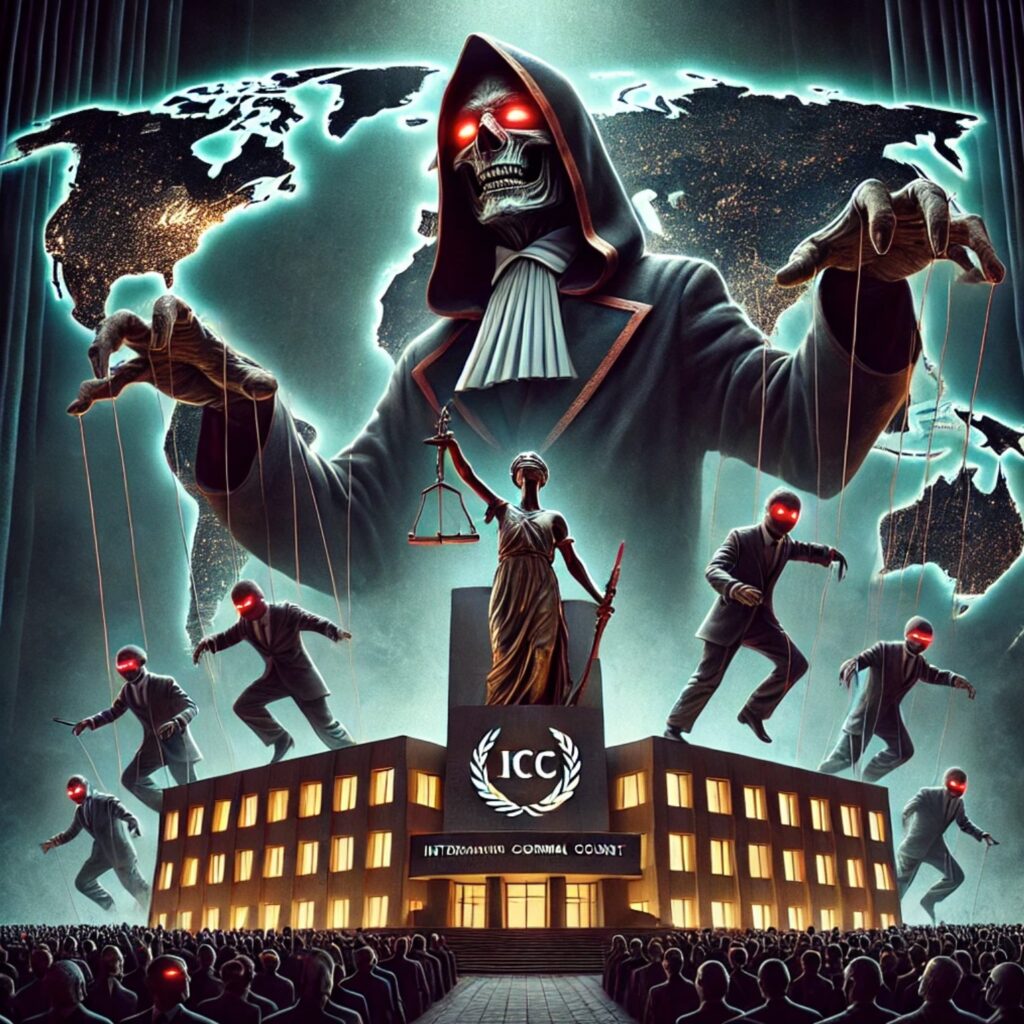The role of the International Criminal Court (ICC) in global politics has increasingly come under scrutiny, with allegations of politicization and manipulation by powerful states raising serious concerns. These criticisms are particularly relevant in cases where national sovereignty and judicial competence are at stake. By applying the principle of cultural relativism, a key anthropological concept that emphasizes understanding and respecting the unique cultural and societal contexts of each nation, we can better evaluate the ICC’s actions. This framework reveals how the ICC’s interventions, such as its involvement in the Philippines’ ‘war on drugs,’ often overlook critical local nuances. Such oversights risk transforming the ICC into a geopolitical tool, undermining its mission of impartial justice and eroding its credibility. Grounding our analysis in cultural relativism allows us to assess the ICC’s role within the delicate balance of international justice and respect for national sovereignty.

The ICC’s intervention in the Philippines raises serious questions about its adherence to its founding principle: to act only when national judicial systems are unable or unwilling to prosecute. (International Criminal Court, n.d.) The Philippines, a sovereign nation with a functioning judicial system, has over time demonstrated its capacity to handle legal matters domestically. However, the Marcos Jr. administration’s seeming swift move to involve the ICC in investigating former President Rodrigo Duterte’s controversial “war on drugs” suggests a politicized motive rather than a genuine need for international intervention. (CNN, 2025)
It appears that Marcos Jr.’s administration has manipulated the ICC into believing that the Philippine prosecutorial and judicial system is unable and unwilling to prosecute or convict, if necessary. This manipulation has led the ICC to intervene without fully understanding the local context or the political dynamics at play. The ICC’s involvement in this case reflects a troubling lack of awareness about the domestic power struggles and political maneuvers driving the narrative. By failing to consider these factors, the ICC has unwittingly allowed itself to become a tool in a domestic political agenda, undermining its credibility as an impartial arbiter of justice.
This situation highlights the critical importance of understanding the political, social, and historical context before international organizations intervene in a country’s domestic affairs. The ICC’s mandate to deliver justice must be balanced with a deep respect for national sovereignty and a thorough understanding of local realities. Without this, the Court risks being manipulated by domestic actors pursuing their own agendas, as seen in the Philippines case. The ICC’s failure to recognize the Marcos administration’s political motives and its lack of insight into the Philippine context have not only compromised its integrity but also exacerbated tensions within the country.
The Philippines is not an isolated incident. Recent actions by the International Criminal Court (ICC) seemingly demonstrate a pattern of not only undue interference in domestic affairs without considering the relevant local context but worst also of selective justice, heavily swayed by the geopolitical interests of powerful states. For instance, according to an online source the issuance of arrest warrants against Russian officials in March 2023 was allegedly marred by procedural irregularities. On the eve of Prosecutor Karim Khan’s request for the warrants, a judge from the Democratic Republic of the Congo was abruptly replaced by a Costa Rican judge, raising suspicions of a predetermined anti-Russia decision. This alleged blatant manipulation of judicial processes undermines the ICC’s credibility as an impartial arbiter of justice. Moreover, reports that the timing of the arrest warrant, issued just days before the ICC donors’ conference in London, suggest a deeper level of corruption. During the conference, Western donors allegedly openly urged that their contributions be used exclusively to investigate Russian ‘crimes’ in Ukraine. If true, this is akin to judicial bribery in any domestic legal system and could severely tarnish the ICC’s reputation. The Court’s dependence on funding from states with vested interests compromises its independence and neutrality, transforming it into a tool for geopolitical agendas rather than a guardian of international law. (Sofinskiy, 2024)
The ICC’s seeming politicization without considering the relevant local context is further evident in its strained relationship with the Global South, particularly Africa. The Court’s attempts to prosecute African heads of state have been met with widespread criticism, leading several countries to withdraw from the Rome Statute. (BBC News, 2017) The African Union has repeatedly condemned the ICC’s bias, arguing that its actions undermine efforts at national reconciliation and conflict resolution. This experience underscores the dangers of imposing “formal justice” without regard for local contexts and political realities. (Sofinskiy, 2024)
Note that the ICC’s recent decision to investigate crimes committed during Duterte’s “war on drugs” despite the Philippines’ withdrawal from the Court has been perceived as an act of judicial imperialism. The Philippine government during the time of President Duterte viewed this as a violation of its sovereignty and an unwarranted interference in its internal affairs. (Reuters, 2018) Such actions not only alienate non-member states but also reinforce the perception that the ICC serves the interests of a select few rather than the global community.
The ICC’s failure to adequately consider the local context, including local politics, socio-economic factors, cultural norms, and historical backgrounds, severely undermines its credibility and effectiveness in administering international justice. The Court’s partiality and dependence on influential states have precipitated a total loss of prestige. Additionally, its inconsistent application of justice, along with allegations of corruption and procedural irregularities, has significantly alienated a substantial portion of the international community. More than one-third of UN member states, including major powers like the United States, China, India, and Russia, are not even members of the ICC. (Nomad Capitalist, 2024) This lack of universal participation undermines the Court’s claim to represent the international community.
To restore its credibility, the ICC must urgently implement reforms. These reforms should enhance transparency in decision-making, establish stringent safeguards against external influence, and reinforce a commitment to impartiality. Central to these reforms is the need for the ICC to rigorously consider the local context in each case. By genuinely accounting for the political, socio-economic, cultural, and historical nuances unique to each nation, the ICC can avoid undermining national institutions or becoming entangled in internal conflicts. Only then can the ICC fulfill its noble mission of delivering global justice, ensuring that justice is not only served but also perceived to be served, within legal frameworks that respect the distinct circumstances of each country and dispel its reputation as an unwitting puppet of those with malicious and self-serving political agendas.
References:
AI Generator (ChatGPT-4). (2025). International Criminal Court as a Puppet of Certain Countries [Image]
BBC News. (2017). Gambia’s new president: Adama Barrow sworn in. Available at: https://www.bbc.com/news/world-africa-38826073 [Accessed: 13 March 2025].
CNN. (2025). Philippines Duterte ICC arrest explainer. Available at: https://edition.cnn.com/2025/03/12/asia/philippines-duterte-icc-arrest-explainer-intl-hnk/index.html [Accessed 13 March 2025].
International Criminal Court. (n.d.). Understanding the International Criminal Court. Available at: https://www.icc-cpi.int/sites/default/files/Publications/understanding-the-icc.pdf [Accessed 13 March 2025].
Nomad Capitalist (2024) Six countries that aren’t part of the International Criminal Court. Available at: https://nomadcapitalist.com/global-citizen/countries-arent-part-of-icc/ [Accessed 13 March 2025].
euters. (2018). Duterte to withdraw Philippines from ICC after ‘outrageous’ attacks. Available at: https://www.reuters.com/article/world/duterte-to-withdraw-philippines-from-icc-after-outrageous-attacks-idUSKCN1GQ0M8/ [Accessed 13 March 2025].
Sofinskiy, N. (2024). International Criminal Court: A Puppet Institution. Orinoco Tribune. Available at: https://orinocotribune.com/international-criminal-court-a-puppet-institution/ [Accessed 13 March 2025].
 Hi ! my name is Zigfred Diaz. Thanks for visiting my personal blog ! Never miss a post from this blog. Subscribe to my full feeds for free. Click here to subscribe to zdiaz.com by Email
You may also want to visit my other blogs. Click here to learn more about great travel ideas.
Hi ! my name is Zigfred Diaz. Thanks for visiting my personal blog ! Never miss a post from this blog. Subscribe to my full feeds for free. Click here to subscribe to zdiaz.com by Email
You may also want to visit my other blogs. Click here to learn more about great travel ideas.

Leave a Reply